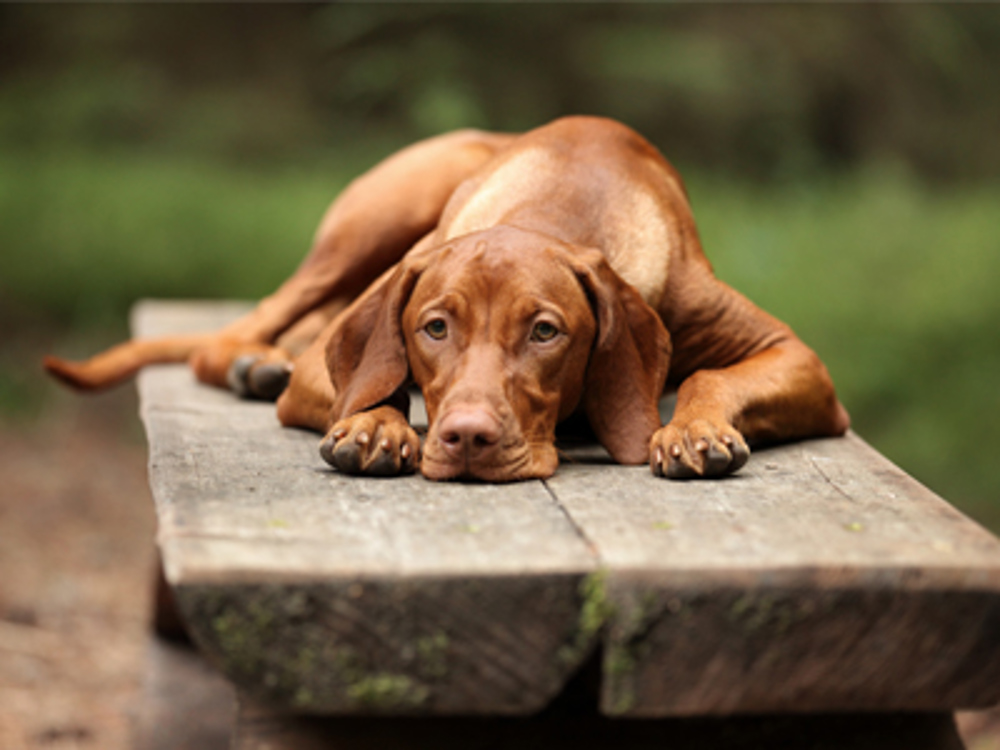
As your dog gets older, you may find them wanting to take things a little slower. In the later stages of their life, your dog’s body will undergo a number of changes. They may digest and metabolise food slightly differently and their immune system may not work quite as well as it did, so they’ll need extra support to help them adjust.
What is a ‘senior’ dog?
A dog is usually considered to be ‘senior’ at around seven years old, but this varies depending on their size. Larger dogs tend to be categorised as ‘senior’ at around five or six years old, while smaller dogs tend to reach this stage at around nine years of age. As your dog enters this phase of their life, their diet will need to support their changing needs and they may require food that is more age appropriate and better suited to their nutritional requirements.
Watching what your older dog eats
It’s much easier for older dogs to put on weight. Being less active, often due to joint problems, and having a slower metabolism means that it’s much more difficult for them to burn the calories that they gain from food. Becoming overweight or obese puts further strain on a dog’s joints and can cause other health issues that reduce their life expectancy.
Hints and tips:
Hints and tips:
- Regardless of your dog’s age, it’s always good to keep an eye on their weight. This can be done using a resource called body condition scoring
- As your dog gets older, it’s a good idea to switch over to a diet that is lower in calories. Always speak to your vet before changing your dog’s diet
- If you’re concerned that your dog is overweight, contact your vet to discuss an action plan on how best to help your dog
- Ensure your dog is getting enough exercise. If your dog has joint problems then this may be difficult to do, but you can always speak to your vet about the best ways to do this and find possible alternatives, such as hydrotherapy
Changing what they eat
Moving from an adult diet to one that is more suited to a senior dog is not as straightforward as it may sound. Suddenly switching to any new diet can cause your dog to have an upset stomach. When changing your dog’s diet, it’s usually best to add a small amount of new food to their current one, and gradually change the ratio of old food to new food over 7-10 days.
Changing feeding habits
As well as changing the food you give your older dog, you may need to alter your feeding habits to help them deal with their changing bodies and to enjoy their food more.
Changing how much and how often they’re fed – Many dogs are used to being fed twice a day, but older dogs may prefer to be fed smaller amounts more frequently.
Changing how much and how often they’re fed – Many dogs are used to being fed twice a day, but older dogs may prefer to be fed smaller amounts more frequently.
- Enhancing their enjoyment – If you feed your dog anything that is refrigerated, ensure that you take it out of the fridge two hours before giving it to them. Food served at room temperature will taste and smell much nicer, even if your dog’s senses have been impaired by age. If you forget or it’s not possible to do this, then you can briefly warm wet food in the microwave, but make sure it’s not hot as this could burn their mouth. If giving dry food, make sure it’s kept somewhere dry and clean and ideally in a re-sealable or airtight package to keep it tasting and smelling fresh.
- Give them peace and quiet – Your older dog may prefer to eat at their own pace in a quieter area, so try to feed them somewhere that is less busy. If you have more than one dog, try to feed them separately so that your older dog is able to eat without being interrupted.
- Make it easier for them to eat – Arthritis in senior dogs can make it more difficult for them to bend down to eat their food, so try putting their food in a slightly raised bowl.
- Watch how much you’re giving them – If your older dog is less energetic and burning fewer calories, then it’s easy to give them too much food for their energy requirements. Follow the manufacturer’s guidelines on the quantity of food to give your dog and remember to weigh it out to avoid giving them too much. Manufacturer’s guidelines are, as the name suggests, just a guide, so keep an eye on your dog’s size and adjust the amount if you need to.
- Give them access to water – an important part of any dog’s diet is access to clean water. Staying well hydrated can help to keep them healthy.
Think your dog may be affected?
If you're worried about your dog's health, always contact your vet immediately!
We are not a veterinary organisation and so we can't give veterinary advice, but if you're worried about any of the issues raised in this article, please contact your local vet practice for further information
Find a vet near you
If you're looking for a vet practice near you, why not visit the Royal College of Veterinary Surgeons' Find a vet page.
